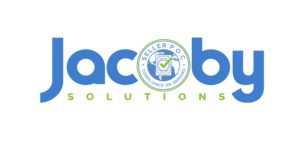Growing Number of Companies Fined For Failing to Report Product Defects
When companies learn of a dangerous product flaw, they have a duty to alert the authorities. Yet, there was a startling rise in the number of firms that tried to dodge this responsibility in 2011.
April 20, 2012 /24-7PressRelease/ — Every day, you rely on thousands of manufactured products. From the brakes on your car to the bed you sleep in, somewhere down the line a company had to design, construct and test the items that fulfill your basic needs.
Although most products are safe, sometimes hazardous items slip through the cracks and enter the stream of commerce. Defective products are responsible for thousands of injuries every year.
When a company finds out that one of its products presents a danger, they are required to take measures to protect the public. Yet, the latest numbers show that companies are becoming increasingly tightlipped about big product defects.
Defective Product Reporting Requirements
The Consumer Product Safety Commission is the federal agency responsible for publicizing information on recalled products. Under the terms of the Consumer Product Safety Act, manufacturers, distributors, importers and retailers are all required to report potentially hazardous products to the CPSC once they become privy to information that reasonably supports the conclusion that a product:
– Fails to meet a consumer product safety rule, standard or ban;
– Contains a defect that could create a substantial product hazard; or,
– Creates an unreasonable risk of serious injury or death
Information that can give rise to reporting responsibility arises in many ways, from internal quality control data to customer complaints. Generally, companies must make a report to the CPSC within 24 hours of the receipt of such information.
Reporting Failures Increased Fivefold In the Span of a Year
The CPSC is empowered to levy fines against companies that fail to file a timely report regarding a product defect. In 2010, the CPSC used this power against only two companies for a combined penalty of just over half a million dollars.
In 2011, however, the number of companies penalized for their sluggish response to product defects skyrocketed to ten. This time, the total annual fines topped the $4 million mark.
A Lawyer Can Help You Hold Negligent Manufacturers Responsible
The disturbing trend towards more defective product cover-ups is bad news for consumers. But, CPSC fines are not the only way to combat marketers of dangerous items. If you or a loved one has been injured by a product due to a design flaw, a fault in the manufacturing process or a failure to provide adequate warnings about known dangers, you may be entitled to monetary damages. Call a defective products lawyer to learn more about your right to compensation from makers of unsafe products.
Article provided by The Kreeger Law Firm
